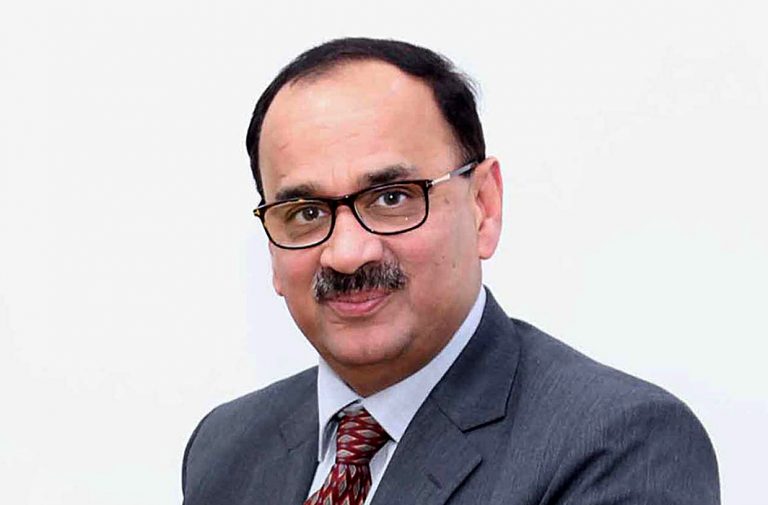
Bench headed by Chief Justice Ranjan Gogoi reserves order on petition filed by CBI director with his retirement, on Jan 18, fast approaching
The Supreme Court, on Thursday (December 6), reserved its order on the petition filed by CBI director Alok Verma challenging the Centre’s decision of October 24 to send him on leave after divesting him of all his responsibilities.
The day saw arguments for over three hours by counsels for the Centre and the Central Vigilance Commission – the respondents in the case – and rejoinders submitted by senior advocate Fali Nariman, appearing for Verma, and others who have sought the apex court’s direction to reverse the controversial midnight decision of the government.
Nariman rejected the contention of the respondents that the action against Verma did not amount to his transfer and that he continues to be the investigation agency’s chief by asserting that the two-year tenure of the CBI director must mean a functional term and not one where he is the occupant of the office only in title but not in his duties.
Senior advocate Dushyant Dave, appearing for an NGO that has sought reversal of the Centre’s order, made similar submissions and insisted that while the CVC is mandated under law to have superintendence over the CBI in cases registered under the Prevention of Corruption Act, it could not replace the CBI director. Dave said that the mechanism of a selection committee to appoint the CBI director was a safeguard given by law and that the Parliament had not imagined that such a situation that arose in Verma’s case (where the CBI director and special director were involved in a public spat) and that the submissions made by the respondents – the Centre and the CVC – portrayed a dichotomy wherein each of them was claiming to have the power to divest the CBi chief of his charge.
Slamming the CVC, Dave told the apex court bench of Chief Justice Ranjan Gogoi and Justices SK Kaul and KM Joseph that the vigilance panel adopted different standards on similar facts while acting against Verma and Asthana. “The CVC rubbished the allegations against Asthana at the time of his appointment and said they cant be acted upon unless proved. But in case of Verma, they acted promptly, without waiting for allegations to be proved,” Dave said, adding that the CVC must be scrupulously objective at all times.
Countering Attorney General KK Venugopal’s argument that the selection panel for the CBI director becomes redundant once the appointment has been made, Dave said: “the Attorney General submitted that the committee became functus officio but my submission is that it is the government that has become functus officio (with regard to appointment and transfer of the CBI director), in light of Section 4 (1) of the DSPE Act once the CBI chief is appointed.”
“You may call it (the action against Verma) suspension or transfer but the fact remains that the post of the CBI director is untouchable in the absence of a reference or approval of the selection committee,” Dave said, adding that there was “no exigency for the respondent to pass such an order at 2 hours past midnight… there is much more than meets the eye… Verma was being stopped from doing something.”
Senior advocate Kapil Sibal, appearing for Congress leader Mallikarjun Kharge (he is a member of the selection committee also comprising of the Prime Minister and Chief Justice of India), told the bench that if the arguments of the respondents are accepted then it would amount to giving unbridled powers to the Centre vis-à-vis the CBI chief’s appointment and effectively nullify the top court’s landmark Vineet Narain verdict.
The court also heard submissions by senior advocate Rajeev Dhavan, appearing for CBI officer AK Bassi who has challenged his transfer to Port Blair soon after the government divested Verma of his charge. Bassi was heading the SIT constituted by Verma to investigate six cases of corruption against Rakesh Asthana. However, hours after M Nageswara Rao replaced Verma as the interim CBI chief, he transferred Bassi and all other members of the SIT probing Asthana, out of Delhi. Dhavan, however, limited his submissions on the action against Verma, stating that the Centre’s decision had turned the CBI upside down.
With arguments and rejoinders concluded, the bench reserved its order on Verma’s petition. Verma’s two year term as CBI director is due to end on January 18. It now remains to be seen whether the Supreme Court reverses the Centre’s decision to divest Verma of his charge, and if it does, will Verma return to his job with a vengeance, expediting ongoing probes against Asthana and other sensitive cases, including one into the Rafale deal, which he was looking into when the Centre abruptly sent him on leave.
—India Legal Bureau


Citizens sitting on sea shorearfe anxious to know the outcoe to acess status of teh government in killing democracy. Will CJI act as per wishes of Government? or otherwise will raise the curtain from hidden ………..
Comments are closed.